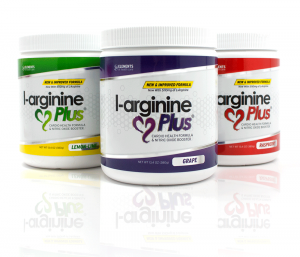Exercise is beneficial for your heart – especially if you increase your intensity. Find out how high-intensity exercise helps the heart.
 According to a recent study appearing in the European Heart Journal, higher-intensity exercise may reduce your heart disease risk more than moderate-intensity exercise. While experts have emphasized the importance of exercise on heart health, there is less focus on the type and duration of activity.
According to a recent study appearing in the European Heart Journal, higher-intensity exercise may reduce your heart disease risk more than moderate-intensity exercise. While experts have emphasized the importance of exercise on heart health, there is less focus on the type and duration of activity.
The study suggests that an increase in brisk (or high-intensity) exercise like running may lead to as much as a 40 percent drop in cardiac disease. In addition, the researchers note that total hours may also help lower your risk even more.
While past large-scale studies have used questionnaires, Paddy Dempsey, Ph.D., the first author of the paper explained that their study used wearable fitness trackers to get better data. “Without accurate records of physical activity duration and intensity it hasn’t been possible to sort out the contribution of more vigorous physical activity from that of overall physical activity volume,” says Dempsey, who is a Research Fellow at the University of Leicester and Medical Research Council (MRC) Epidemiology Unit at the University of Cambridge.
The Study Results
“New data indicates that not only can sedentary behavior be deadly with increased cardiac events, but that physical activity is not only a modifier, but the intensity of that physical activity matters,” said Dr. Jayne Morgan, cardiologist and executive director of Health and Community Education at Piedmont Healthcare, Inc. “The more vigorous your workouts, the greater the cardiac protection.”
“While the type of physical activity was not specifically studied, converting current habits, or adopting new ones can be selected based on what fits into your lifestyle,” Morgan added. The authors of the study recommend people increase their rates of brisk activity by walking at a faster pace or doing more aerobics within the same period of time as before.
“Examples of vigorous physical activity include running, swimming laps, singles tennis, and jumping rope,” said Dr. Rachel-Maria Brown Talaska, the director of inpatient cardiac services at Lenox Hill Hospital. “Patients should incrementally increase physical activity in partnership with their healthcare provider; if you are doing nothing then do something – possibly light physical activity. If you are doing something – such as light physical activity, then do more – such as moderate or vigorous activity. Aim for the next level! Your heart will thank you.”
Helping Your Heart
 Maintaining good heart health is essential and regular exercise plays an important role when it comes to your cardiovascular health. If you’re not used to working out, then start small and gradually increase your time and intensity. Experts recommend doing at least 150 minutes of exercise per week.
Maintaining good heart health is essential and regular exercise plays an important role when it comes to your cardiovascular health. If you’re not used to working out, then start small and gradually increase your time and intensity. Experts recommend doing at least 150 minutes of exercise per week.
In addition to working out, you can give your heart health an extra boost by taking supplements like L-arginine Plus. It promotes circulation, energy levels, blood pressure, cholesterol, and overall heart health. Give your heart the support it deserves by exercising regularly and taking L-arginine Plus.

